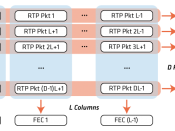ERROR CORRECTION 2
INTRODUCTION 2
What is error correction and why is it an important task? 2
ERROR CORRECTION IN WRITING 2
DISCUSSING THE ADVANTAGES AND DIS-ADVANTAGES OF DIFFERENT TECHNIQUES IN CORRECTING WRITTEN MISTAKES 2
Correction 3
Controlled-correction 4
Guided correction 5
One-to-one correction 6
Writing a letter 7
Peer correction 8
ERROR CORRECTION IN SPEAKING 9
DISCUSSING THE ADVANTAGES AND DIS-ADVANTAGES OF DIFFERENT TECHNIQUES IN CORRECTING ORAL MISTAKES 9
Teacher corrects immediately on the spot 9
Teacher helps student to self-correct 9
Peer correction 10
CONCLUSION 10
BIBLIOGRAPHY 12
Error correction
Introduction
What is error correction and why is it an important task
Students tend to find doing homework or participating in class activities a bore if they aren't corrected and provided with feedback concerning their gradual progress in their knowledge of the target language as well as in another lesson. If students in any way notice that the teacher is acting indifferently about grading or correcting them accordingly in different skills then they will gradually with time become demotivated.
In the following stages, the different techniques used for correcting errors in writing and speaking will be dealt with individually.
Error correction in writing
Discussing the advantages and disadvantages of different techniques in
correcting written mistakes
In this part, various techniques used for correcting errors in written work will be illustrated and discussed in detail. Feedback on correcting written work comes in two forms. The first is formative and the second summative. "Formative feedback is to help learning proceed," as Liz and Heasley suggest (1987:143). This is basically where students are corrected at different degrees opposed to the amount of self-correction, which is expected of them. Here, the teacher has to attempt to be as objective and unbiased as possible. Summative feedback as Liz and Heasley (1987)...


